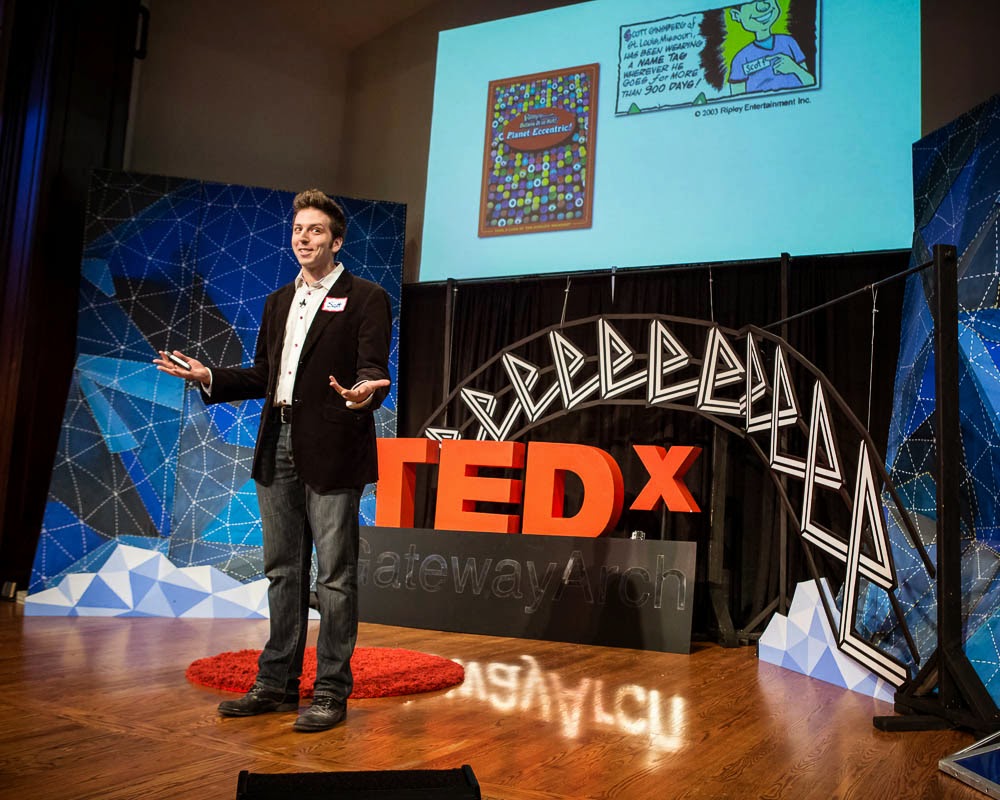

All creativity begins with the moment of conception.
That little piece of kindling that gets the fire going. That initial source of inspiration that takes on a life of its own. That single note from which the entire symphony grows. That single spark of life that signals an idea’s movement value, almost screaming to us, something wants to be built here.
And so, in this new blog series, I’m going to be deconstructing my favorite moments of conception from popular movies. Each post will contain a video clip from a different film, along with a series of lessons we can learn from the characters.
Today’s clip comes from the standup scene from Funny People:
What can we learn?
We all leave behind a trail of fail. I’ve written books that never sold, launched websites that were ignored, delivered performances that bombed, produced videos that were snubbed, executed products that tanked, even pitched a few television shows that were laughed at. Big deal. Creativity without failure, isn’t. Failure is fertilizer. It’s what makes us work harder, which makes us get better. And as long as we keep getting better, we become successful eventually. Besides, what’s the worst thing that could happen if we did fail? People who never tried get to laugh at us? Fuck those people. Failure means we risked failure. Doing something makes us right. That’s what I love about this character. George is a rich and successful and famous comedian, and yet, he throws himself into failure as a new and soaring creation. And nobody can stop him. As uncomfortable as this scene is to watch, it’s still an inspiring reminder for the next generation of creators, people whose job it is to fail, repeatedly, until they don’t. What have your failures and missteps qualified you to do?
Granting meaning to your failures. Shakespeare famously wrote that there is nothing either good or bad, but thinking makes it so. I’ve always loved that passage. It’s ethical relativism at its most basic. But it’s also a mature, stoic strategy for approaching failure. It’s a reframing device that removes the subjective stain of judgment and expectation and projection and interpretation from our experiences. If a jewelry maker, for example, spends two hours forging a steel bracelet that winds up looking nothing like the original drawing, he could view the piece as a failure. He could allow his discouragement to globalize and devastate the whole of his experience. On the other hand, the designer could make the proclamation that there are no success or failures, only the consequences of experiments. And he could choose not to automatically assigning meaning to his experience, thus breaking the addictive cycle of interpretation. The point is, when you’re a fundamentally affirmative, relentlessly optimistic person, failure is only as devastating as your lack of imagination. Just because you can’t celebrate the victory, doesn’t mean you can’t celebrate the effort that went into the failure. If your perception of and response to failure were reframed, what would you attempt to achieve?
Fail often enough to get good. The reason standup comedy is so difficult is because it’s a binary construct. It’s like pregnancy. There’s no preheat setting. You’re either funny or you’re not. The crowd is either laughing or they’re not. Period. And so, not even the most seasoned veteran can hide behind the delusion that he’s brilliant when he’s bombing on stage live. Comedians are craftsmen. Their performances force them to reckon with the infallible judgment of reality, in a venue where their failures can’t be interpreted away.
But that’s a good thing. It reminds the artist that greatness awaits, but only through the refining fire of failure. That when they fail in search of something bigger, it’s easier to reconcile the discomfort of the moment. Because in the end, art is a long arc game. We can create for a lifetime. There is no expiration date on our imagination. And so, as long as we stay in the game long enough, we can eventually aggregate enough failures and experiences that failure is no longer on the table. In the meantime, we can celebrate the sincerity of the effort, the passion in its pursuits and the care in its execution. Even if nobody is laughing. How can it be mathematically possible to fail at expressing yourself?
What can we learn?
* * * *
Scott Ginsberg
That Guy with the Nametag
Author. Speaker. Strategist. Filmmaker. Publisher. Songwriter.

Never the same speech twice. Customized for your audience. Impossible to walk away uninspired.
Now booking for 2014-2015.
Email to inquire about fees and availability. Watch clips of The Nametag Guy in action here!
